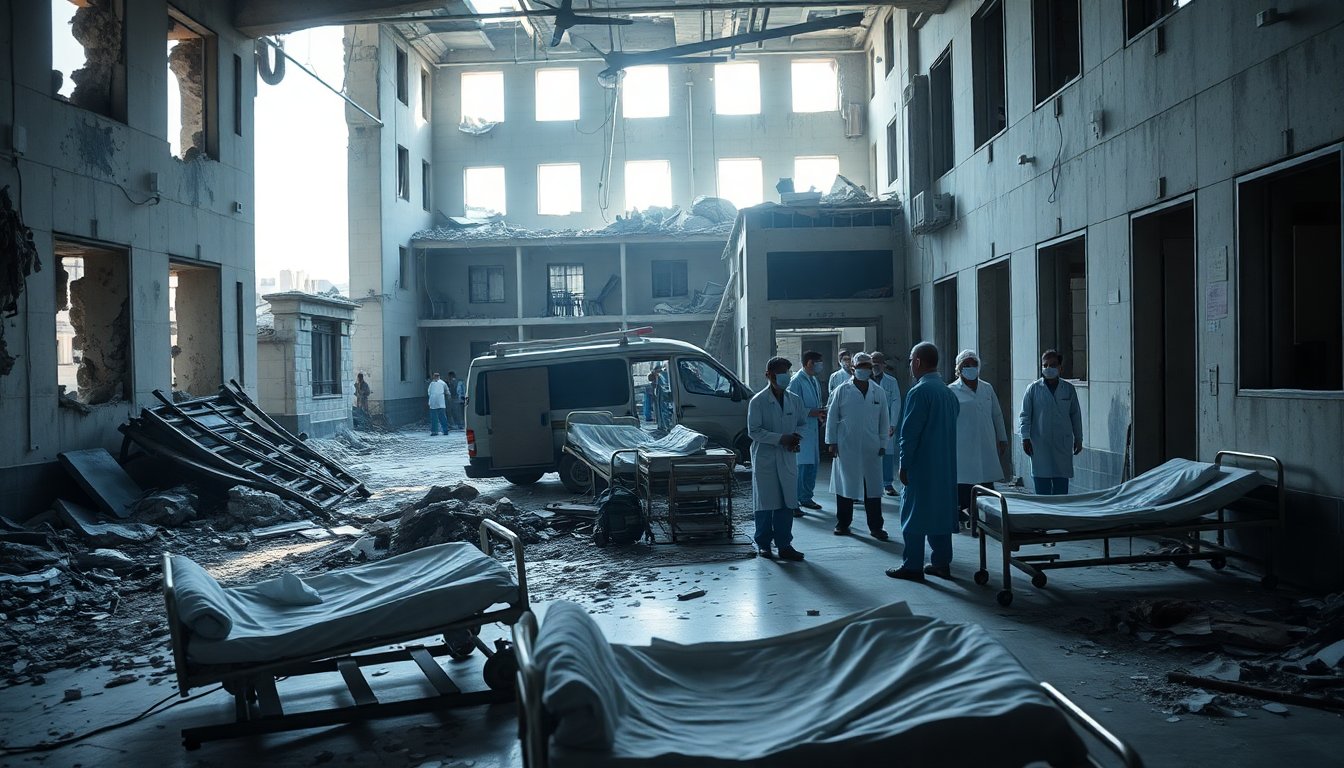Table of Contents
The situation in Gaza is increasingly dire as military operations intensify, severely impacting the region’s health services. Reports from the Gaza Health Ministry indicate that two hospitals have been rendered non-operational due to relentless bombardment. The escalation of conflict has caused significant damage to critical healthcare infrastructure essential for the civilian population.
As military tanks advance further into the territory, the repercussions are felt most acutely by those requiring medical care. Specifically, Al-Rantissi Children’s Hospital has suffered extensive damage from recent airstrikes, while the nearby Eye Hospital also faced attacks, forcing it to halt operations. The Health Ministry condemned these actions, framing them as part of a broader strategy to undermine the healthcare system in Gaza and a deliberate act against the civilian population.
Military Operations and Their Impact on Civilian Life
Israeli military actions have escalated over the past few weeks, with Gaza City now identified as the last stronghold of Hamas. The military claims it is targeting housing complexes used by militants, but this has resulted in widespread destruction of residential areas, displacing many families. Witnesses have described the advance of Israeli tanks into neighborhoods like Sheikh Radwan and Jala Street, where the affected hospitals are located.
Destruction of Infrastructure
The use of remote-controlled explosive-laden vehicles has led to the demolition of numerous homes in these districts, compounding the crisis. Residents report that access to medical facilities has become perilous, with no safe routes available for patients seeking urgent care. This has resulted in tragic outcomes, as casualties continue to mount from military actions, further straining the already limited healthcare resources.
Humanitarian Concerns Amid Ongoing Violence
As the conflict continues, the plight of hostages held by Hamas adds another layer of urgency to the situation. Families of Israeli captives remain anxious, with reports suggesting that many of these individuals are still alive. A recent video released by Hamas featuring one of the hostages, Alon Ohel, has drawn attention to ongoing negotiations and the psychological warfare at play.
Meanwhile, international organizations have expressed grave concerns regarding the humanitarian crisis unfolding in Gaza. A recent inquiry by the United Nations accused Israel of committing acts of genocide in the region, a claim that Israeli officials have vehemently rejected, labeling it biased and unfounded. This accusation adds to the complexity of the situation, as both sides engage in narratives reflecting their perspectives on the conflict.
Casualties and Ongoing Struggles
Local health authorities reported that at least 25 individuals were killed due to Israeli fire on one particularly violent day, with the majority of casualties occurring in Gaza City. The stark reality is that the ongoing conflict has claimed the lives of over 65,000 Palestinians, many of whom are civilians, according to health ministry data. The repercussions of military actions have led to severe food shortages and mass displacement, resulting in a humanitarian disaster.
In addition to the situation in Gaza, the conflict has repercussions extending into neighboring regions. An Israeli drone strike in southern Lebanon recently resulted in civilian casualties, further escalating tensions in an already fraught area. Despite a ceasefire agreement, the Israeli military continues to target what it claims are Hezbollah positions, raising fears of a wider regional confrontation.
Calls for Action and Future Prospects
The international community is being urged to take decisive action in response to the ongoing violence and humanitarian crisis. Palestinian officials and human rights organizations are calling for accountability and the introduction of sanctions against Israel should it continue its current trajectory. As the conflict deepens, the need for a sustainable resolution becomes increasingly urgent.
In conclusion, the situation in Gaza remains critical as military operations intensify, leaving healthcare systems in tatters and civilian lives in jeopardy. The international response and future diplomatic efforts will be crucial in determining the course of the conflict and addressing the humanitarian needs of the affected populations.


